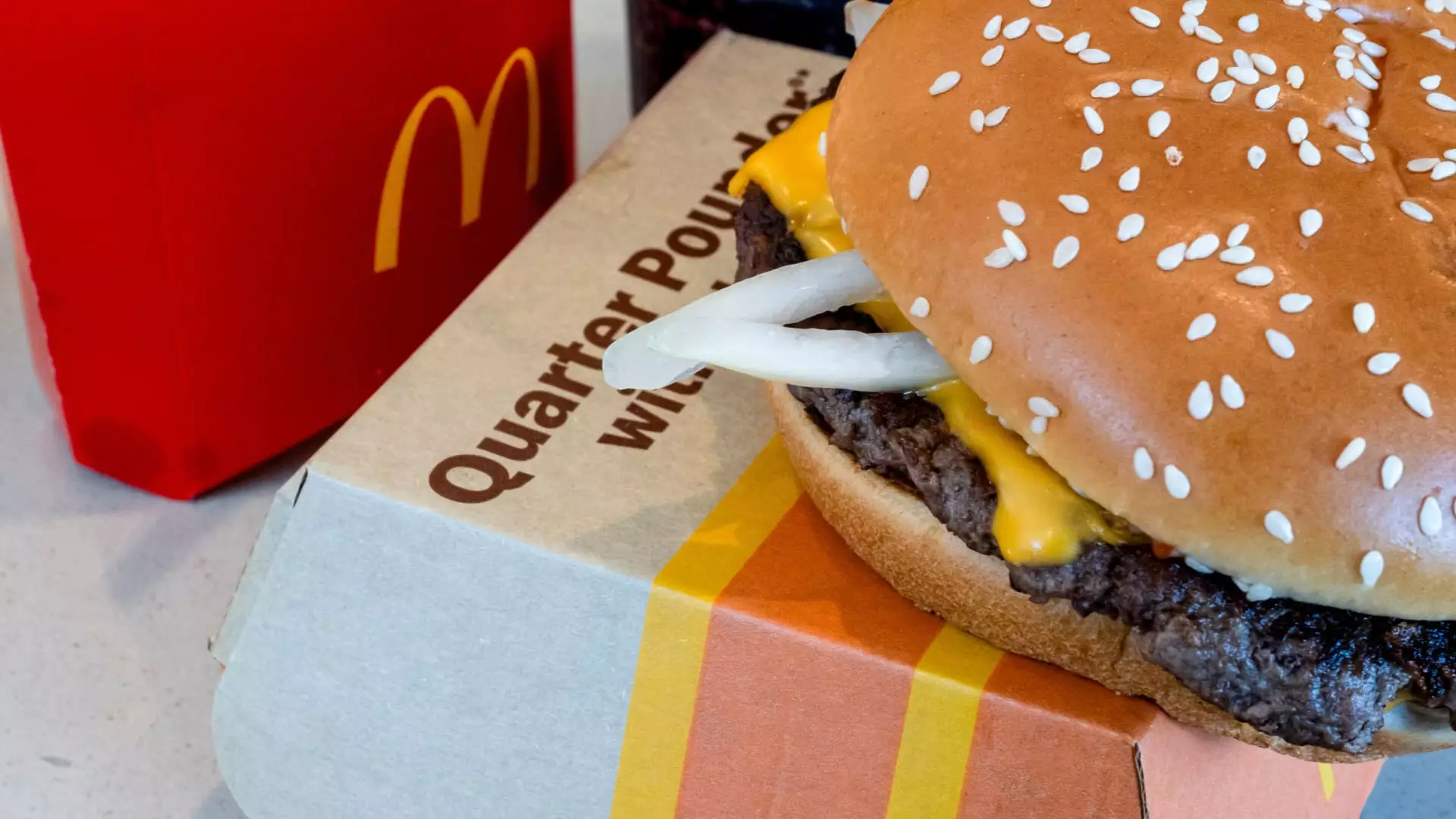The recent outbreak of E. coli infections linked to McDonald’s Quarter Pounder hamburgers has sent shockwaves through the fast-food giant and the nation. With 75 reported cases across 13 states, as announced by the Centers for Disease Control and Prevention (CDC), the situation continues to unfold. As more information comes to light, it is essential to delve deeper into the dynamics of the outbreak, its implications for public health, and the potential impact on McDonald’s reputation and sales.
The CDC has reported that out of the identified cases, at least 22 individuals have been hospitalized, and there is a confirmed death of an older adult in Colorado associated with this outbreak. The seriousness of this situation is amplified by the fact that E. coli infections can lead to severe health complications, including hemolytic uremic syndrome, a condition that can cause kidney failure. The age range of those affected is considerable, spanning from 13 to 88 years, indicating that E. coli does not discriminate by age, potentially affecting vulnerable populations more severely.
The outbreak’s true scope may be underreported, as many patients with E. coli do not seek medical attention and recover on their own. The CDC has also noted that it often takes three to four weeks to confirm whether a person is part of an outbreak. This timeline raises the possibility that additional cases may emerge as investigations continue and assessments are conducted.
McDonald’s has positioned the Quarter Pounder as a cornerstone of its menu, contributing significantly to its annual revenue. The fast-food chain has not publicly commented on the latest updates from the CDC, maintaining the stance taken earlier when the outbreak was first reported. In a proactive response to the outbreak, McDonald’s halted the use of slivered onions from its supply, which have been identified as a likely source of contamination. The company also temporarily ceased distributing this ingredient in affected areas, including several states stretching from Colorado to New Mexico.
In addition to addressing the onion concerns, the CDC and other federal agencies are investigating the beef patties used in the Quarter Pounder. This multifaceted approach highlights the complexity of food safety regulations and the challenges fast-food companies face when responding to health crises.
Following the outbreak announcement, the stock of McDonald’s declined 6%, reflecting investor concerns about potential repercussions from the outbreak. The initial report of 49 cases and one death quickly escalated, leading to a 2% drop in shares following the most recent update. Such fluctuations illustrate the immediate financial implications when a major health risk is associated with a well-known consumer brand.
Despite this downturn, market experts suggest that the long-term damage to McDonald’s brand may not be as devastating as one might anticipate. Comparisons have been drawn to a similar E. coli outbreak linked to Wendy’s two years ago, which, although troubling at the time, had a limited impact on the company’s brand equity. Nevertheless, McDonald’s is attempting to reassure customers about the safety of its menu items, aiming to mitigate consumer fears while investigators work to trace the outbreak’s origins.
This incident does not only concern McDonald’s; it raises questions about food safety protocols across the fast-food industry. Rival chains, including Burger King, Pizza Hut, KFC, and Taco Bell, have responded by removing onions from their menus, reflecting a shared need for vigilance in health and safety standards within the competitive landscape of fast food.
Moreover, this outbreak comes at a challenging time for McDonald’s and the broader industry, which is grappling with sluggish sales figures. Heightened consumer price sensitivity has prompted fast-food chains to innovate with value menus, yet safety breaches threaten to derail these strategies. The upcoming earnings report may provide insights into how this outbreak will affect performance moving forward, but the immediate concern remains the health of consumers.
As McDonald’s navigates this critical juncture, the company must balance addressing public health concerns and restoring consumer confidence. Transparency and clear communication will be vital in the days to come. The CDC’s investigation is ongoing, and the lessons learned from this event may drive stronger food safety protocols in the future. Ultimately, while the fast-food giant faces immediate challenges, effective management of this crisis could define its resilience and ability to adapt within a competitive industry.

